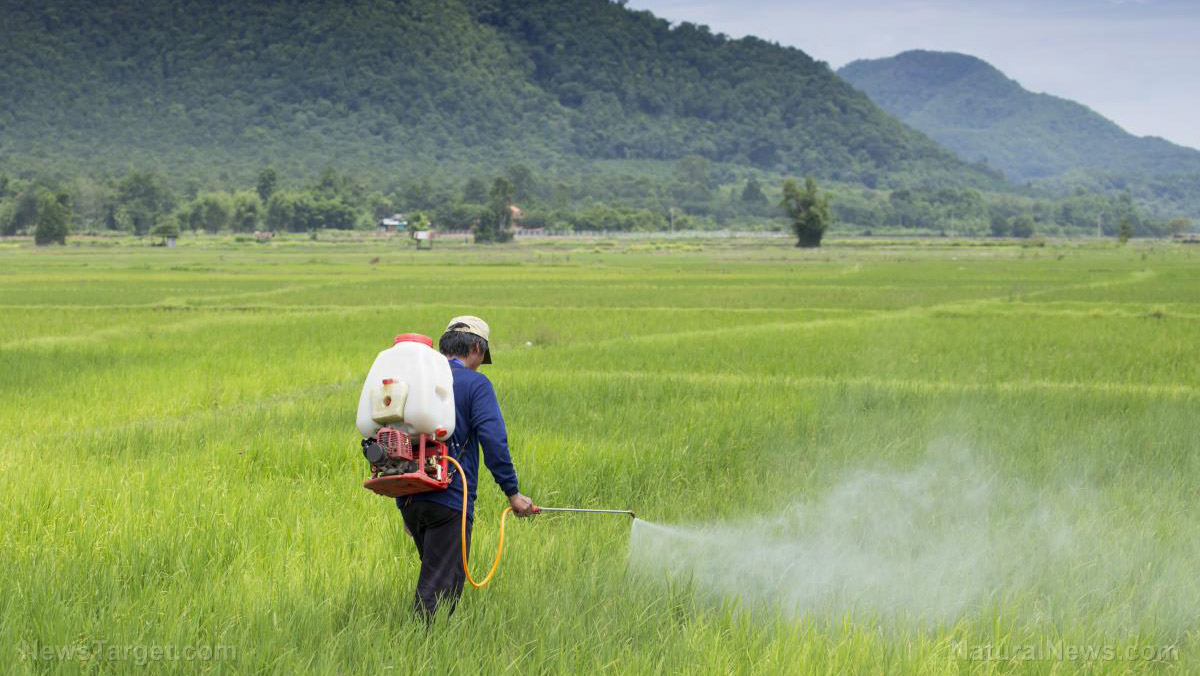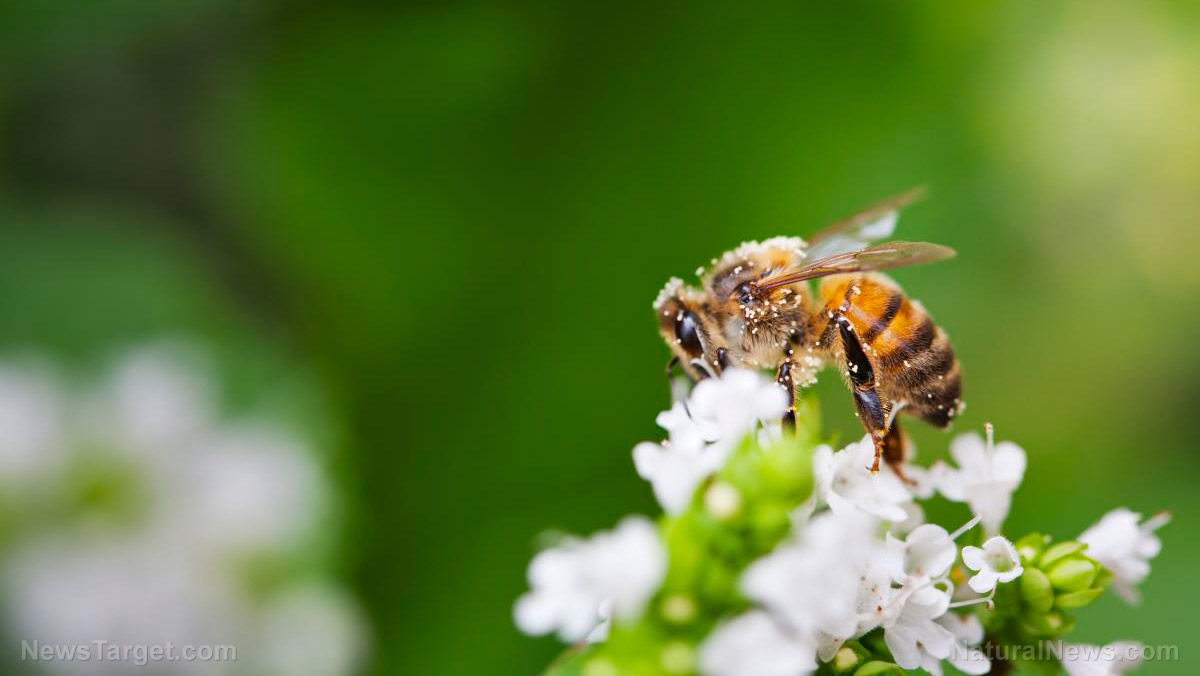600+ lawsuits linking Syngenta’s weed killer to Parkinson’s set to proceed
03/10/2022 / By Kevin Hughes

After Monsanto Co. suffered its first courtroom loss over charges that its glyphosate weed killer causes cancer and that the company hid the risks, it is now Syngenta’s turn.
The mass crime machinery that brought down Monsanto has fixed its view on the Chinese-owned, Switzerland-based agrochemical titan Syngenta and its selling of a weed killer known as paraquat. (Related: Lawsuits piling in against Syngenta over paraquat weedkiller, which causes Parkinson’s Disease.)
Paraquat is a toxic chemical commonly used for weed and grass control. It is available mostly as a liquid in different strengths in the United States. The U.S. Environmental Protection Agency (EPA) categorizes paraquat as “restricted use,” which means that it can be used only by licensed applicators.
Several research studies have connected paraquat to the development of Parkinson’s disease and attorneys representing people from around the U.S. claim Syngenta has known these dangers for decades but neglected to warn users.
A case management conference in the litigation was set in federal court Friday, March 4, after many of Syngenta’s top managers were forced in recent weeks to sit down for hours of questioning under oath by lawyers of the complainants.
Among the topics of questioning given to Syngenta were: the efforts it took to identify paraquat safety concerns; knowledge of certain paraquat studies; policies and procedures relating to complaints or health effects reported by users; safety procedures used in the manufacturing process; knowledge of alternative chemicals; and marketing efforts around paraquat.

Among the group of executives who testified were: Philip Botham, principal science advisor for Syngenta’s Product Safety Group; Montague Dixon, U.S. regulatory portfolio lead, Herbicides Regulatory and Stewardship North America; Clark Ouzts, product marketing lead; and Clive Campbell, Syngenta’s chief medical officer.
Roundup litigation lawyers join Syngenta case group
On the complainants’ side are several of the same lawyers who headed the Roundup litigation, including lawyers from The Miller Firm, which served the very first Roundup trial to a $289 million verdict against Monsanto.
As was the case in the Roundup litigation, there are several complainants filing lawsuits against Syngenta that the case has been enclosed in what is known as multidistrict litigation or an MDL.
Based on court records, more than 600 lawsuits are pending presently in the paraquat MDL under the management of Chief U.S. District Judge Nancy Rosenstengel in the U.S. District Court for the Southern District of Illinois.
A similar group of paraquat lawsuits is being tackled through Judicial Council Coordination Proceedings (JCCP) in Contra Costa County Superior Court.
People filing the lawsuits are those who developed Parkinson’s after working on farms and ranches, in schools or in jobs for municipalities where they were said to have been exposed to paraquat.
Parkinson’s is an incurable ongoing nervous system disorder that can create tremors and loss of balance and leave victims seriously weakened until death.
Paraquat is used in agriculture and is known especially as an effective but hazardous herbicide. Regulators as well as companies selling it warn users that swallowing even small amounts can kill a person quickly.
But while the toxic nature of paraquat is recognized, accusations that it causes Parkinson’s disease remains a heated discussion.
Dutch neurologist blames paraquat, other toxic chemicals for spread of Parkinson’s disease
Dutch neurologist Bastiaan Bloem recently wrote a book about Parkinson’s, blaming rampant exposure to herbicides like paraquat, together with other toxic chemicals utilized in agriculture and manufacturing, for the increase of the disease.
Syngenta and co-defendant and former paraquat distributor Chevron USA insist there is no connection between the chemical and the disease, and they contend that newer and more robust research has actually disregarded a tie between paraquat and Parkinson’s.
While the lawsuit focuses presently on discovery and gathering of evidence, a crucial question still to be resolved is which of the many complainants bringing allegations will be the first to go to trial.
Lawyers for Chevron have questioned the legality of some of the complainants’ particular exposure claims, calling them “dubious,” and showing that some complainants searching trial dates have said they were using paraquat and/or were in another way exposed to the chemical at times and in places where paraquat was prohibited.
Chevron pointed out in a court filing that one complainant claimed exposure in 1940, which was two decades before the chemical was brought into the market.
Rosenstengel, in the MDL, has arranged a first trial date for November this year, although that date is likely to change. Meanwhile, the first trial in the JCCP is not expected until May next year.
More related stories:
Exposing the toxicity of the common weedkiller, Atrazine.
Scientists develop fast method of detecting toxin from pesticides and chemical weapons.
Bayer considers pulling Roundup from U.S. market after judge rejects $2 billion settlement deal.
“Forever chemicals” from biosludge fertilizers threaten existence of farms in Maine.
Watch the video below to know how Syngenta lose $218 million verdict in first GMO trial test.
This video is from the Natural News channel on Brighteon.com.
Follow Chemicals.news to learn more about the harmful effects of pesticides.
Sources include:
Submit a correction >>
Tagged Under:
This article may contain statements that reflect the opinion of the author



















